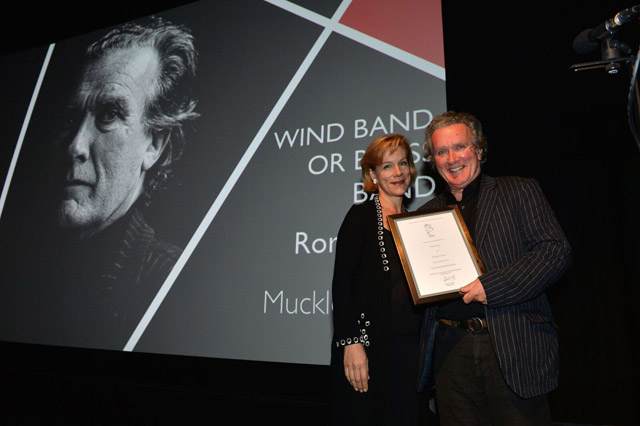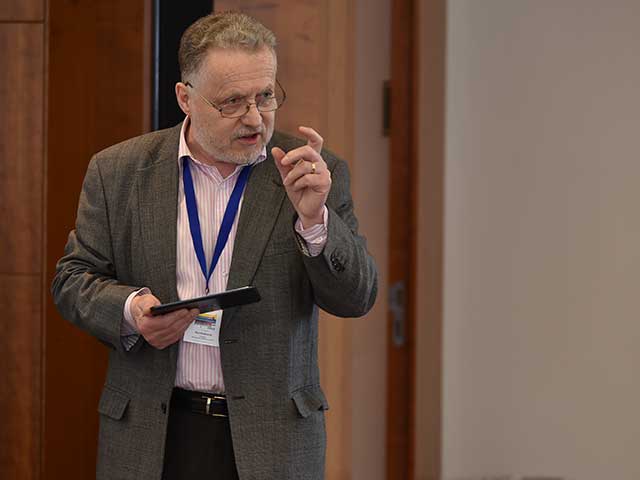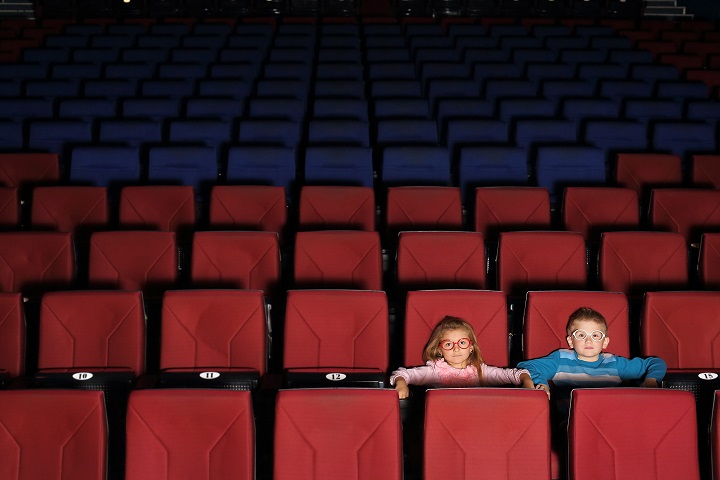
A decade of financial salami cuts imposed by austerity politics on budgets that fund different types of music services have created the most obvious challenges to the long term health of the brass banding movement in the UK.
However, any championing of our own form of extinction rebellion protest in response to a potentially dystopian future of ever dwindling player numbers and financial insecurity is increasingly being undermined by a retreat into a shell of self-imposed insularity.
Brass bands have yet to find their own version of Greta Thunberg.
Summed up
It was summed up at the recent ‘Ivors’ British Composer Awards that took place at the British Museum in London - a high profile media event sponsored by PRS for Music and broadcast on BBC Radio 3.
There, two of the foremost composers to have written for the brass band medium were presented with accolades which recognised their outstanding creative talent amid the company of their peers from the choral and jazz to stage and sonic art worlds in the UK.

Edward Gregson and Gavin Higgins were presented with awards this year
Edward Gregson triumphed in the ‘Amateur or Young Performers’ category for his work ‘The Salamander and the Moonraker’ for children’s choir, narrators and orchestra, whilst Gavin Higgins took the ‘Orchestral’ category honour for his Trombone Concerto, ‘The Book of Miracles’.
It was cause for deserved celebration - yet it did not go unnoticed that for the first time since 2003 there was no category for works created for brass or wind bands.
It meant the duo could not be joined by a potential winner who had a composition premiered for the brass band medium between April 2018 and March 2019 (there has been at least one short listed composer since 2008) who would be able to gain all important peer as well as commercial recognition for their excellence.
It was cause for deserved celebration - yet it did not go unnoticed that for the first time since 2003 there was no category for works created for brass or wind bands.
Eternal credit
There was no-one to follow in the footsteps of winners Simon Dobson, Lucy Pankhurst, Nigel Clarke, Rory Boyle, Paul McGhee and Shri Sriram, or finalists such as John Pickard, Emily Howard, Fumiko Miyachi, Robert Saxton, Phil Lawrence or Edward Gregson and Gavin Higgins themselves.
To their eternal credit when accepting their awards (and not for the first time) Edward Gregson and Gavin Higgins spoke passionately about the need for investment both financially and artistically in musical education and brass banding.
It was ambassadorship that displayed a rare generosity of spirit on behalf of the brass band movement.

Rory Boyle's 'Muckle Flugga' won the 2015 award
Moribund
The Ivors are the seen as the BAFTAs of the musical world – influential, powerful and authoritative, yet for those enjoying the canapés and small talk at the British Museum on the night, for all intents and purposes brass bands were as moribund as some of the extinct exhibits to be found in the glass cases of the grand galleries around them.
for those enjoying the canapés and small talk at the British Museum on the night, for all intents and purposes brass bands were as moribund as some of the extinct exhibits to be found in the glass cases of the grand galleries around them.
Paltry
It has since transpired that only four brass band compositions were actually submitted for consideration this year - a paltry, pathetic response, especially given that it isn’t exactly difficult to enter.
Not only was it not good enough to make up a quorum for a category to be announced, but so too, it was alleged, was the quality.

A space reserved?
Troubling
What was even more troubling however was that the absence was not even remarked upon by Crispin Hunt, Chair of the Ivors Academy or others.
He spoke in glowing terms about the works and the creators recognised as those that “...adventure far into the evolving musical landscape.”
Meanwhile, Alan Davey, Controller BBC Radio 3, offered his congratulations, “...to all the winners and those on the short list, without you sharing new ideas and pushing the whole musical scene forward, the world would be a less interesting place musically.”
Nigel Elderton, Chairman, PRS for Music, said that it was “...an honour to celebrate” the achievements of those nominated.
The absence of brass bands was like the equivalent of not reading out an entry in an obituaries column in case it caused embarresment.
And why should they?
Depressing
What made it even more depressing however was that anyone can enter a work for consideration - the composer included, although it must be anonymised with all references removed from the material. There is even an ‘anonymity checklist’ to help.
Works eligible for 2019 should have received a UK premiere between 1st April 2018 and 31st March 2019 and have been created by a composer born or ordinarily resident in the UK.
Those that can be considered for 2020 should be given their UK premiere from April 1st 2019 onwards.
What made it even more depressing however was that anyone can enter a work for consideration - the composer included, although it must be anonymised with all references removed from the material. There is even an ‘anonymity checklist’ to help.
Self-awareness
However, speaking to a leading composer who had tried to find out more about the lack of representation this year, it transpired that the organisers were also surprised by the lack of proactive activity and self-awareness that now seems firmly embedded within the brass band movement.
They told 4BR: “This is perhaps the most worrying aspect. People such as Paul Hindmarsh (RNCM Brass Band Festival Artistic Director) have done so much to try break the movement free of its cloying, damaging insularity, but where has been the support for his efforts?

A champion for brass band music in the wider world - Paul Hindmarsh
It appears as if we don’t wish to connect with the wider musical world - that we are happy telling each other how good we are by playing music that has such a narrow outlook that only we can fully appreciate and understand - one governed by contesting and contesting alone.
What lasting benefit will that ingrained attitude have? The brass band movement is in real danger of being marginalised to extinction by its own actions.”
Cannot connect
They added: “It’s also led to a series of works that cannot connect to a wider audience. It’s as if we are writing our own suicide notes full of brilliant, but meaningless technical virtuosity.
How can the brass band movement attract the best compositional talent to write for it, if all we want from them is a work to win a contest that only they themselves care about?”
Brass bands must change their outlook - one that is outward and embracing, instead of being inward and inflexible, suspicious of new voices and new ideas.
They concluded: “Brass bands must change their outlook - one that is outward and embracing, instead of being inward and inflexible, suspicious of new voices and new ideas.
I know the wider musical world respects brass bands but I wonder if brass bands themselves have much respect for the wider musical world. They are in real danger of being quickly forgotten.”
Ailments
If the recent ‘Ivors’ highlighted one major cause for concern, then other ailments are surely contributing to the self-inflicted myopia.
The suspicion of musical outsiders – not ‘one of us’, has become a pickled dogma of ignorance and distain – be it composers, judges or even players from other genres.

Will the next generation fill seats to listen to brass band music making?
Meanwhile, there are still far too many contests that have very little sense of purpose, with many played out to audience numbers that have reached extinction levels themselves.
We only feel safe adjudicating ourselves (with conductors now judging rivals in competitions they themselves are competing in) within contest structures that bear little reflection on the actual standard of playing being heard for prize money that is less than the fee to enter the contest itself.
Yet as we continue to congratulate ourselves on our brilliance in our little bubble of self-interest, all the while the wider musical world, the one which still manages to attract audiences and financial support, is moving further and further away from us.
Crumbs
We seem happy to survive on the crumbs from national media table; the occasional newspaper feature and television appearance.
In 2019 we actually gained sympathetic, informed coverage from the BBC and Sky Arts, yet what has been done to build on it?
The recent Brass Bands England Conference (at which Edward Gregson made an excellent speech) highlighted the problem.
To be fair, BBE is trying hard to address some of these issues, yet unless they gain widespread support, you wonder if even they can redress the balance.
The ‘Big Question’ debate there was about the purpose and structure of contesting. It was as if our link to the outside world was an existential irrelevance.
Not all lost
To be fair, BBE is trying hard to address some of these issues, yet unless they gain widespread support, you wonder if even they can redress the balance.
All is not yet lost (at least three new works will be performed at January’s RNCM Brass Band Festival and a few more at Butlins and the Regionals), but if we are not careful our self-pitying, self-regarding insularity will surely send us hurtling down the track towards a form of extinction quicker than we thought possible.
And in far too many ways we will only have ourselves to blame...
Iwan Fox













